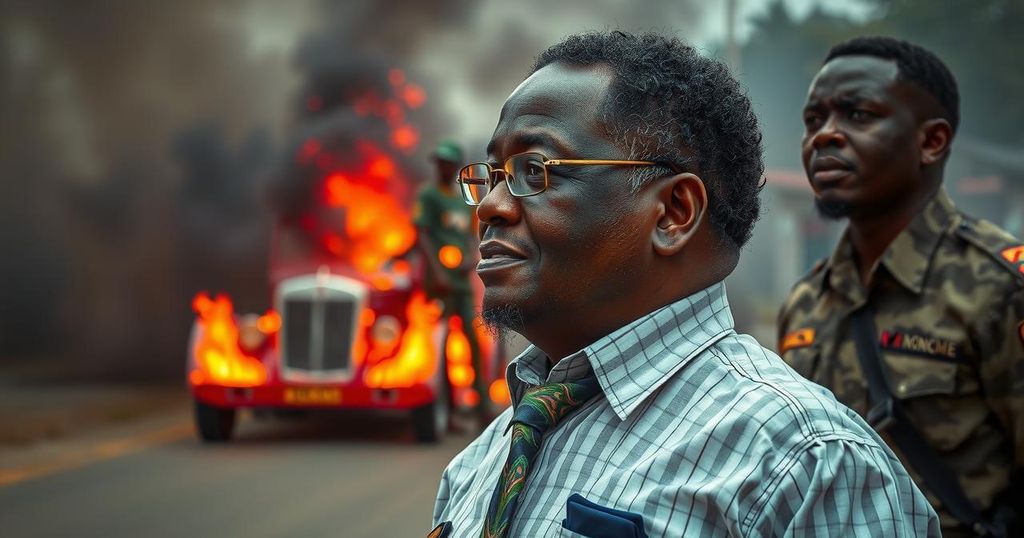Mozambique Faces Deadly Unrest Following Election Court Ruling
Following the confirmation of Daniel Chapo’s election victory, Mozambique experienced violent protests leading to at least 21 deaths, including police officers. The unrest was largely driven by supporters of the losing candidate, Venancio Mondlane, and resulted in over 236 recorded acts of violence. The situation remains tense, with calls for further protests on the horizon.
The recent confirmation of Daniel Chapo as the winner of Mozambique’s disputed elections by the Constitutional Council has led to severe unrest throughout the country, with violence claiming the lives of at least 21 individuals, including two police officers. The Interior Minister, Pascoal Ronda, indicated that the escalated violence and looting emerged swiftly following the court ruling and primarily involved supporters of the losing candidate, Venancio Mondlane, who garnered 24% of the votes compared to Chapo’s 65%. Reports indicate over 236 violent incidents were documented in a single day, along with significant damage to property and public safety forces.
In the aftermath of the elections held on October 9, tensions have been palpable within Mozambique, culminating in widespread protests following the election results. The unrest gained momentum particularly after the court’s announcement, with various disturbances observed in Maputo and Beira, where protesters engaged in vandalism and looting. Mondlane has subsequently called for a “shutdown” to commence on Friday, indicating a potential for continued conflict and unrest. The situation remains precarious, with claims of police retaliating with gunfire against demonstrators, further exacerbating the distress in the capital and beyond.
The turmoil in Mozambique is not a new phenomenon; it follows a pattern seen throughout recent electoral processes in the nation. With the population standing at approximately 34 million, a significant youth demographic has emerged as a vocal force in the political landscape, often leading to intensified confrontations with security forces. The ongoing struggle for electoral legitimacy and political stability continues to challenge governmental authority and social cohesion within the country.
Mozambique has been historically susceptible to electoral violence, particularly as political factions vie for power in a context where the ruling party, Frelimo, has maintained a dominant position since the country’s independence. The dynamics of unrest following elections can be partly attributed to longstanding grievances among opposition supporters, who often feel disenfranchised by the political process. The recent elections, marked by allegations of unfair practices and a lack of transparency, have intensified sentiments among opposition groups, leading to the current series of violent protests. The dissatisfaction reflects deeper issues related to governance, economic disparity, and the youth’s increasing activism in shaping the country’s future.
The escalating violence in Mozambique following the Constitutional Court’s ruling illustrates the fragility of peace in the wake of contested elections. With the death toll rising and widespread unrest affecting urban areas, immediate measures to restore order and address underlying political grievances are essential to prevent further deterioration. The international community, alongside national authorities, must prioritize dialogue and engagement to foster stability and rebuild trust among the populace.
Original Source: www.the-journal.com




Post Comment